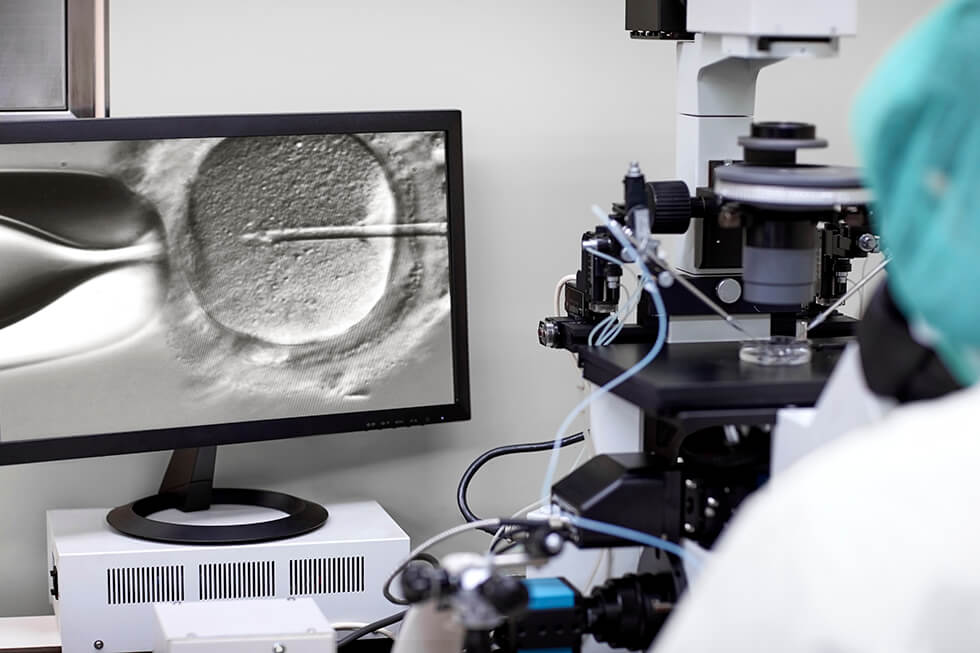
In vitro fertilization (IVF) is a complex series of procedures that we use to help with fertility or prevent genetic problems and assist with the conception of a child. During IVF we collect mature eggs from ovaries and fertilize them with sperm in a lab. The fertilized egg also known as embryos are transferred to a uterus. A full cycle of IVF takes about three weeks. There are times however when these steps are split into different parts and the process can take longer. IVF is the most effective form of assisted reproductive technology. The procedure can be done using your own eggs and your partner's sperm. IVF may involve eggs, sperm or embryos from a known or anonymous donor. In some cases, a gestational carrier — a woman who has an embryo implanted in her uterus — might be used. In addition to performing standard IVF cycles, we also offer PGT-A and PGT-M. PGT-A is a test we use to screen embryos for genetic abnormalities. PGT-A can accurately determine if an embryo possesses the right number of chromosomes (euploidy) or too few or too many (aneuploidy). Unlike PGT-A which simply identifies which embryos are chromosomally normal, this type of testing goes a step further. It can identify which embryos have or carry a specific inheritable genetic illness. Examples of common genetic disorders that PGT-M can identify, include cystic fibrosis, hemophilia, muscular dystrophy, polycystic kidney disease, sickle cell disease and Tay-Sachs disease. Your chances of having a healthy baby using IVF depend on many factors, such as your age and the cause of infertility. Our doctors at Hudson IVF, will help you understand how IVF works, and whether this method of treating infertility is right for you. We use IVF primarily as a treatment for infertility or genetic problems. We offer IVF as a primary treatment for infertility in some women over age 40. Some other conditions that we offer IVF for include, fallopian tube damage or blockage, ovulation disorders, endometriosis, uterine fibroids, impaired sperm production or function, unexplained infertility, genetic disorders and fertility preservation for cancer or other health conditions.

